Ordinary human life
post by David Hugh-Jones (david-hugh-jones) · 2022-12-17T16:46:10.818Z · LW · GW · 3 commentsThis is a link post for https://wyclif.substack.com/p/ordinary-human-life
Contents
3 comments
I woke up early and read a book. At 7 I turned on the radio. A bit later, I got up, fed and walked the dog, playing a game on my smartphone. I skinned a mango for breakfast and started work. A friend came round for lunch and we talked about a paper we’re working on. Tonight would normally be choir, but we had the concert last week so there’s a break. Instead I’ll probably watch something on Netflix.
This is ordinary human life. Parts of it are new. I couldn’t have watched Netflix even five years ago, and when my parents were born they could not have watched any television at all. Radio is barely a century old. Mangos were rarely seen in UK supermarkets until perhaps a generation ago. My smartphone game uses augmented reality, and could be part of the Metaverse which Facebook is betting on.
Other parts are older. Western choral music goes back to about the 15th century, if you are counting from the invention of harmony. Music in general is much older than that, originating at least 40,000 years ago. Hunter-gatherers share food — the !Kung say that eating alone is for lions, not men — so again meals are a very old institution, and of course eating itself is a biological necessity. Dogs as pets? Thousands of years old.
Ordinary human life embodies our values. Everything good or bad that happens to us, happens within our lives. When we talk about “good” or “bad” we are talking about them in the context of our lives as we know them. Beyond that context, the concepts make little sense. What would it mean for a bacterium or neutron star to be happy? When we extend the ideas beyond humans, we do it to things that are recognizably similar to us. My dog is excited because he is bouncing around and vocalizing. A factory chicken must be suffering, because it lives in intolerable conditions for creatures like us.
Good and bad are local concepts. They are like signposts around a town. Outside the town, the signs would no longer refer to anything meaningful. Abstract discussions of “utility”, outside a human context, devolve into mathematical games.
At different points in my day I experienced different moods. I was bored or elated, engrossed in a technical problem, relaxing with friends, or obsessing angrily about the past. We can sum up this myriad of emotions in a single dimension, as better or worse. Some days are better than others. I could even put numbers on the days, to reflect which I liked better. Taking those numbers too literally would be silly. It might blind us to the rich variety of our own subjective states. What would it mean to have infinite utility? What would it even mean to be “twice as happy” as now, as opposed to, say, three times? The precision is meaningless from the point of view of ordinary intuition.
Human values can only be understood with respect to human life, which means with respect to human nature.
Joy and woe are woven fine. Our ordinary lives contain a mix of both, and often we cannot have one without the other. You cannot experience the joy of mastery, for instance, in an achievement which took no blood, sweat or tears. There is no love without risk.
The fact that joy and woe are intermingled has led some people to emphasize the paradox in human existence, to celebrate sacrifice, to believe that he who loses his life shall save it, even ultimately to embrace a Nietzschean transvaluation where cruelty and violence are necessary for higher values. But we all have the moderate form of this syndrome. It is what makes us work long hours, stretch ourselves on an early morning jog, or put in the effort to care for an infant.
Despite this, bad is really bad and good is good. It is bad to be tired and hungry. Serious starvation is much worse. War is bad and peace is better. The mingling of joy and woe should not lead us to confuse the two or casually embrace suffering — just to recognize that we cannot aim to eliminate sorrow from real life. It is a condition of human existence, existence both good and bad when viewed from a broad enough point of view. We cannot treat sorrow like cancer and go to war with it. We have to treat it like rain, bear with it, and if possible carry an umbrella.
Capitalism, however, naturally takes aim at not only sorrow but inconvenience.
Nobody wants to carry shopping bags back from the supermarket, or to get up to change the TV channel. Capitalism and capitalist innovation have found solutions for all these problems. It does not discriminate between necessary and unnecessary evils. It removes world hunger and it delivers pizza. It drives the life-saving ambulance, and the car which goes half a mile to the shops.
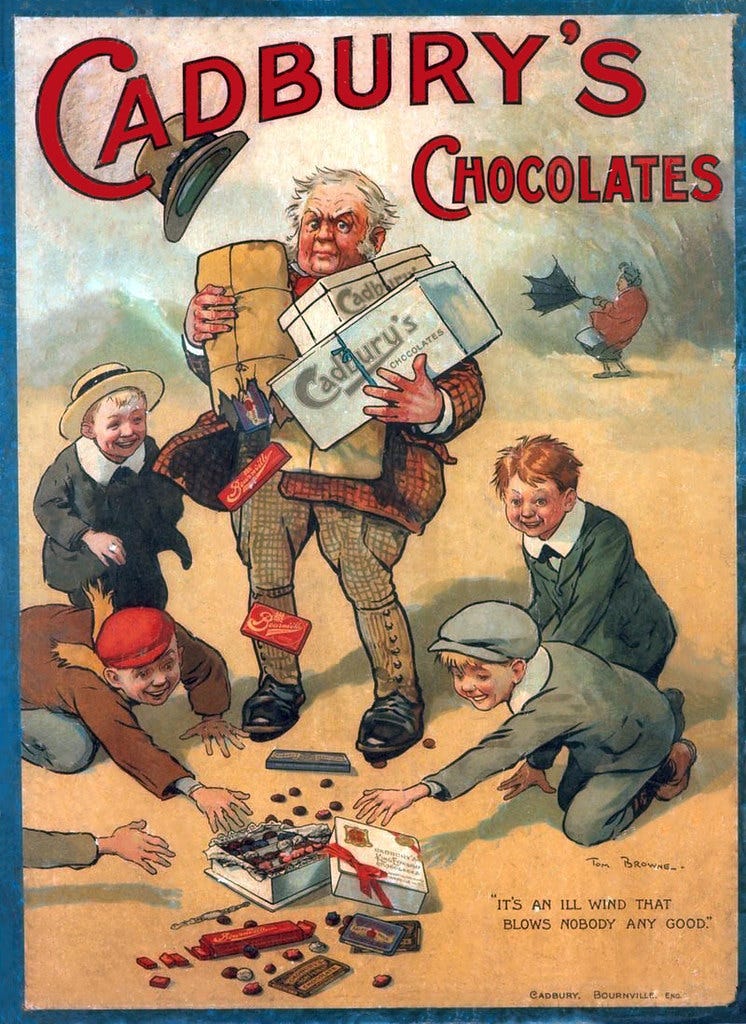
This is fine. It is not the job of Mr Cadbury to decide for me how much chocolate I should be eating. It is my job. Clearly, though, ordinary incentives will not persuade Mr Cadbury to do that job if I do not. Equally, my own “incentives” are not enough of a motivation to do this job. Incentives are a partial motivation. If I want to be thin, I had better not scoff too much choccy, and if I want that promotion I had better put the hours in. But they are not a sufficient motivation. First, if my discount rate is large, then I won’t value my future self enough to take care of the guy. There is nothing irrational about that from the point of view of my preferences of today, but it will clearly be bad for me later. Without sufficient early-life preference formation and training, a person will be set up to be an excellent capitalist consumer, but far from a useful producer. Most of what parents teach can be summed up as getting children to think and care about their future. Now, parents’ incentives may be enough to get this job done — if you have the right parents.
Second, more importantly, the capitalist economy will only pay for the kinds of effort that are valuable to it. It will pay for people to sweat at learning to code, not at learning Ancient Greek. It won’t care if you are thin or fat, so long as you clock in on time.
Again, this is no criticism of capitalism. Capitalism’s job is to give us what we ask for, not to evaluate the wisdom of our demands. But it does mean that an equally efficient market machinery can serve a population with either very high, or very low, levels of those satisfactions in which joy and woe are woven fine. It will provide running shoes for marathon men, or big screens for couch potatoes. If the law allows it, it will even provide opiates to a population which has chosen to live in the House of the Rising Sun.
Over centuries, capitalism has removed many of the woes that are woven with joy, and many of the woes that are unmixed. It has fed the hungry and clothed the naked. Indirectly, via the scientific progress and kinds of government that are conjoined with it and that it brings into being, it has removed tuberculosis and rickets from our cities. It took horse manure off our streets. But it also took the horse. Our air is now smokeless, and for the first time in at least three hundred thousand years (maybe a million), generations of humans have grown up basically unacquainted with fire.
As this example suggests, not the oldest and seemingly most natural practices are immune to progress. Latecomers like the cassette tape and the LP have gone, and the Minidisc before it even arrived; the suit and tie is gradually going, origin 1870-ish. But age is no defence. Shared meals may be as old as humanity, but we can obsolete them if we want. Every human practice can be resolved into a set of conveniences and inconveniences, the conveniences can be swapped out for modern alternatives, and the inconveniences got rid of. Fire and fleet and candlelight, and more abstract things too: friendship, neighbourhood, family, even parenthood.
I mention this because sociologists like Anthony Giddens have argued that modernity is dissolving traditional roles into “pure relationships”, where all that counts is the quality of our relationship with the other person. But the emotional and intellectual aspects of relationships are just as susceptible of disaggregation as the material aspects. (Who hasn’t sometimes preferred books to friends?)
Should we care? There’s a natural nostalgia for things we grew up around, and which time has swept away. People collect LPs and restore old computers. Going back further, they ride horses, keep chickens, or join historical reenactment societies. That doesn’t mean we should get rid of Spotify, cars or supermarkets. Is there any more objective reason than nostalgia to worry about this kind of change?
A useful hard case to think about this issue is pregnancy. Pregnancy and birth are more than inconvenient, they’re uncomfortable, painful and dangerous. We have IVF already: why not industrialize the whole nine months, move it out of the body into some more controlled arena? Perhaps many people will feel some level of repugnance at doing that, out of some sense that after crossing that bridge, humans would not be quite the same species we are today. There might be sex differences in that feeling. I’m not the one at risk of pre-eclampsia.
We want to maximize the good. But whose or what’s? Will the utopia that we are building belong to us?
The progress of improvement does not just change things. By removing inconvenience, it also reduces our capabilities. The first example was agriculture. After the invention of agriculture humans got shorter and worse-nourished. Some thinkers have deduced from this that agriculture was a curse on the human race. They are making the same mistake as the analysts who armoured the bullet-riddled places on the returning plane. The hunter-gatherers were taller and fitter, because the short unfit ones starved.
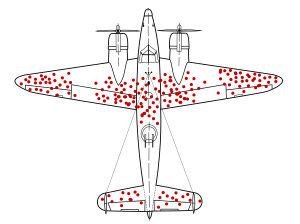
In exchange for our lost tracking skills, we got corn, cities and civilization, surely a worthwhile trade. Plato worried that writing would destroy the art of remembering, and substitute rote-learning for dialogue. Again, he was probably right, but writing also opened up whole arenas of human achievement. In the twentieth century, we made computers add up for us, but that didn’t mean we stopped doing mathematics. A. N. Whitehead said: “Civilization advances by extending the number of important operations which we can perform without thinking about them.” So far, being able to think less about some things has always meant being able to think more about others.
Over the next century, though, the terms of this trade-off may change. Our creations may outperform us not just in some, but in all, mental and physical operations. Computers may make the research mathematician as obsolete as the human computer, and robots may do the same for all kinds of physical work. The whole human race will then be what its less productive members already are: incapable of making any contribution to society that could not be done better and cheaper another way.
Humans support each other in two ways. As part of the network of small-scale units called society, we provide friendship, intimacy, neighbourliness and upbringing to each other. As part of the highly-organized, money-mediated production network called the economy, we provide more formal benefits, from mass-produced goods to specialized services. Technological progress can replace the human as a provider of both these kinds of mutual support. What’s left? If humans become less and less dependent on each other, emotionally or materially, how will that change us? Before we get lost in the Matrix, it’s useful to focus on what has changed already.
Nature. Perhaps the one biggest change to human life in the past century: a majority of humans no longer live on the land. For people in developed countries this is hard to grasp, because their societies mostly went through that change already. The UK was already 50% urbanized by about 1850, for instance. But billions alive today were born around living things and now live surrounded by buildings — sometimes in the same place.
Modern cities have natural amenities, and as they get richer, they may get more green not less. People want nature, and meeting this demand is just an ordinary public goods problem for local governments and property developers.
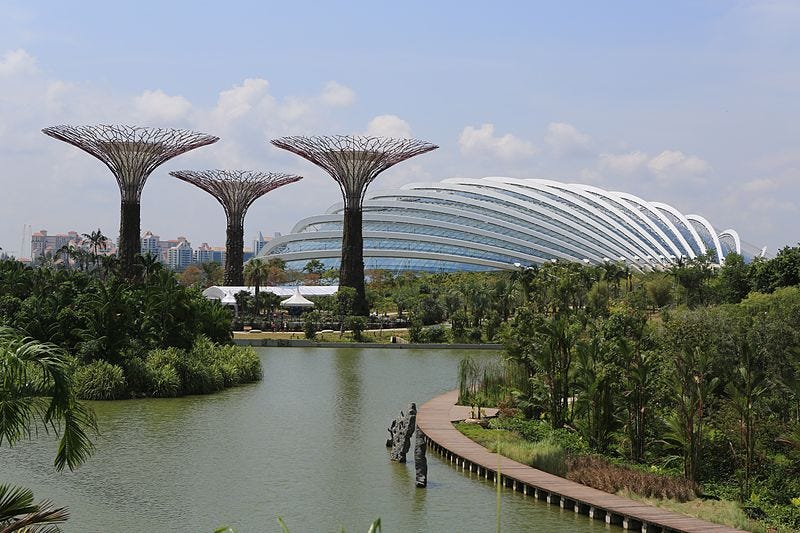
This demand-driven relationship to nature is very different from the relationship of people who live off it. Karl Ove Knausgård somewhere makes an analogy between the deep knowledge of plant and animal species possessed by our ancestors, and the modern consumer’s knowledge of brands. Each type of knowledge is or was useful to its possessors. Now, telling a bluebell from a harebell is a “nice-to-have”. Not surprisingly most people are pretty vague about it.
The great collective move to the cities is both traumatic and liberating, in many dimensions — it reforges people’s relationship with each other, as well as with nature. What is important in the long run about the loss of nature may be that humans have moved into an environment designed specifically for them. That might not be obvious to a person who has just arrived in a Delhi slum. But the potential to redesign the environment to suit us leads towards the high-tech agglomerations of Singapore or Dubai. Like all processes that serve human wants, it is not guaranteed that the outcome will be what we would collectively wish for, or even recognize.
Nature is not just flora and fauna. We are also becoming emancipated from the facts of life: above all, from death. For all of history, human children would expect to see some — plenty — of their friends die as they grew up. Despite the vast inequalities of pre-modern civilizations, no King or Queen was immune from sudden death. “A man may sit at meat, and feel the cold in his groin,” as the chorus chants in Murder in the Cathedral. In a sense, modern inequality is starker because the rich are almost guaranteed to live longer than the poor. Death itself is no longer a constant presence by our shoulder, but the endpoint of a basically death-free life. Often, it takes the form of a gradual fade-out from existence, in a special home designed for the purpose. Less death is good. Obviously. But it is also a fundamental change to the conditions of our existence.
Each other. It’s well known that humans spend more time on our own since the development of modern communications. The drivers behind this are not so clear. One possibility is just that mediated communication is an increasingly good substitute for physical presence. In that case “on our own” would really be a misnomer. A more concerning thought is that mediated communication might actually outcompete the non-mediated kind. For example, consider the difference between, say, a WhatsApp group chat and Twitter. WhatsApp simply lets you chat with your friends. In various ways, it’s both better and worse than being physically in the pub together – easier to converse over the course of the day, less intrusive, but less visceral fun. But both these things are ultimately just you and your friends talking.
Twitter is a bit different. It lets you listen to celebrities and experts, people who may not know you. What is more, Twitter can automatically find the tweets that will interest you most. In effect, with this kind of mediated communication, although it seems you are listening to a defined group of people, that is partly an illusion: you are really listening to Twitter’s algorithm, and what it chooses to show you from its vast database of possible messages. Although Facebook seems to be different, because it requires two-way connections, in fact Facebook also is filtering what you see. You think it’s your friends; really, it’s the algorithm choosing for you and the friends just provide the raw material.
By now, we are very aware of the dangers of these algorithms optimizing for short run “engagement”, when that turns out to mean optimizing for rage and aggression. My point is different. Whatever the optimization target, they will ultimately be driven by the consumer’s preferences for social interaction. (After all, if not, people can change platforms. That is slowed down, but not fundamentally prevented, by network effects, and we’ve seen more than one generation of social platforms rise and fall already.) But getting the social interactions that we prefer is not the same as getting the food we prefer. It fundamentally alters human sociability. Ultimately, we can end up living in a social world which seems to have real people in it, but is really just the machine feeding us slivers of interactions — chopped up so as to avoid the difficult bits.
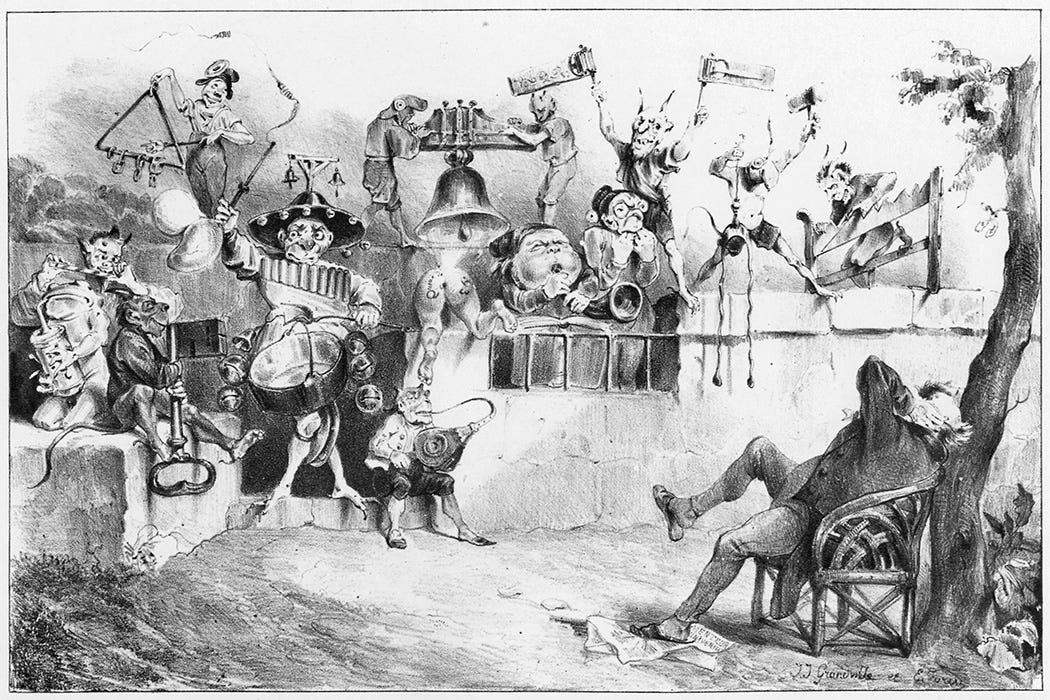
Picking our friends, and escaping from the tyranny of our neighbours, is a deep reason why people move to the city, and an aspect of human progress. Why do Americans love their cars? Because in a car you can choose where to go and who to be with. Before that people were stuck in the urban neighbourhoods around factories or mass transit. Before that, they were stuck in the village. Both places had their strong support networks, but also the skimmington and the charivari if you didn’t fit in. In these places, more-or-less unsorted groups of humans were forced to deal with each other. Modern urban lifestyle let us choose our friends. In Albert Hirschman’s terms, we can substitute exit for voice. The next evolution is that we can interact with just the aspects of our friends that we like. The algorithm will deliver them to us.
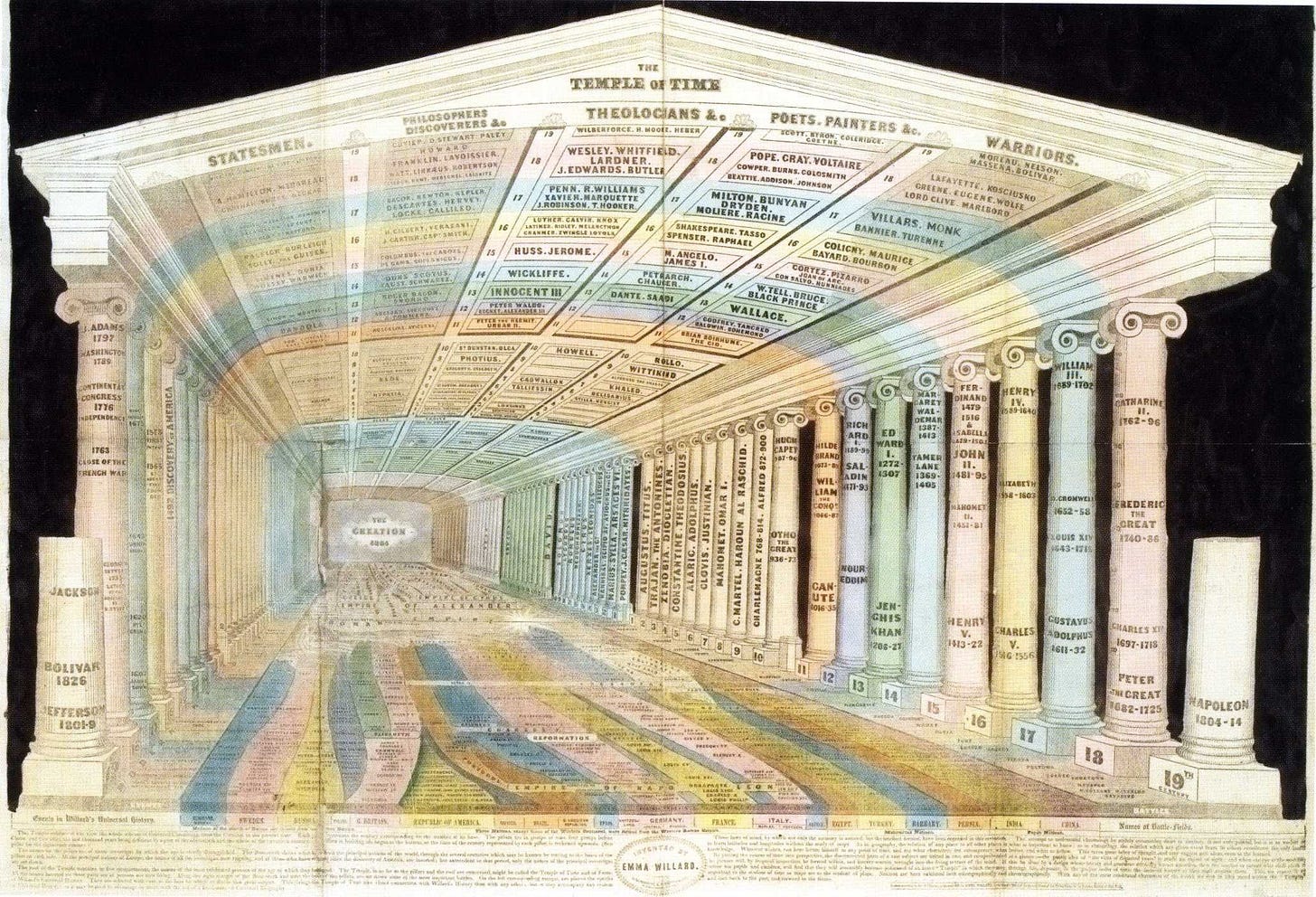
Ourselves. Marshall McLuhan was right: media are “the extensions of man”. When books became plentiful, the ancient art of memory became obsolete. The internet made writing searchable, allowing us to google things instead of knowing them. Now, AI is finding new ways to compress our knowledge and play it back to us on request. This may finally save us from the burden of thinking. Or it may create new human-machine partnerships, if we develop forms of intelligence that complement, rather than substitute for, human thinking.
In the long run, it is hard to see what humans’ comparative advantage will be. We were designed for some combination of outrunning leopards, finding fruit, and dancing nice, plus a bit of thinking. A machine designed purely for thinking may just be better than we are at it on every dimension. We’ll still think, but in the same way as humans still run footraces: for exercise, not because it’s the fastest way to get around or the best defence against leopards.
It's also not obvious that we will need written symbols. Maybe that is the only way to communicate precisely? But maybe, when voice recognition gets just a little better, we will cut out the middle man of writing, and return to speech alone.
A marine biologist once described whale brains as very intelligent, but communicating rarely. People from the Gutenberg Galaxy might seem like that to our descendants. They had the assets of previous generations in their libraries, but they were forced to think deeply because not everything was immediately available. Now, it is much easier to rely on other people and existing data. The best thinkers today might be the best networkers.
Progress is worthwhile because ordinary human life still includes things like cancer. The traditional, simple way of thinking about progress is that it solves problems for humanity. This view has a lot going for it and will do as long as there are still problems to solve. Progress is also, in some sense, what we do. I have been saying that human existence is conditioned by struggle. Well, at the macro level of the whole species, this struggle is just what gives birth to progress. We cannot give it up. And why shouldn’t we dream of transcending our selves, perhaps even of flying to the stars? Progress is wondrous.
At the same time, material progress isn’t entirely under human control. The whole vast apparatus of the now-globalized market ultimately exists to serve Joe Consumer’s whims, and even Joe Consumer doesn’t really know what he himself wants.
For a long time, this too was a good thing. Monarchs who repressed new inventions out of idealism (maybe they would throw people out of work) were not doing humanity any favours. If human progress had been under any individual’s or group’s control, we might not have got much of it. This is still always a possibility: any big technological or institutional leap is disruptive and will threaten the interests of some powerful group.
Nevertheless, the balance is now changing. There are lots of unambiguously good technologies: cheap space travel, solar power, self-driving cars. But for technologies that deeply alter human life, we will do best if we adopt them consciously and thoughtfully — not just as individuals, but also as groups.
The group level is important because technological choices are rarely made alone. Almost all social institutions have the same network quality as social media: if everyone else is on Facebook, you want to be on there too. The same logic holds for the church, the working men’s club, the music hall, the cinema; or for friendship, marriage and parenthood. That is why game theorists think of institutions as equilibria. To take a simple, concrete example, it is probably easier for a school to ban smartphones for all its pupils, than it is for a single family to ban them. (If you’re just one family, the children are going to complain that all their friends have a smartphone. If their friends don’t have them either, that problem goes away.)
It’s commonplace for individuals to deliberate about technology adoption. Books like Deep Work advise us how to control our social media habit. Jonathan Franzen used to throw away his laptop’s wifi card and glue up its ethernet socket.
Communities doing the same thing are rarer, perhaps because it requires quite a tight subculture to manage this. Ultra-Orthodox Jews and Amish all deliberate about what to allow themselves. And then there’s Bhutan. (Bhutan is a classic example where people in advanced countries use it as a projection screen for their fears and dreams; the linked article never mentions the ethnic cleansing of its supposedly idyllic pre-television era.) There are off-grid communities, which tend to have a touristic aspect (“there is a pop-up café…”). Managing the conflicts involved in rejecting aspects of modern life is probably easier when that is part of your offer to holidaymakers.
Nevertheless, groups and cultures that are capable of doing this may face a competitive advantage, if the arcade of modern capitalism threatens people’s ability to get things done. Even if that is not true, and those groups are just evolutionary leftovers, it is simply a valid ethical choice to stay who you are.
There is a contemporary sense that this century is a turning-point. Whether from threats like climate change or AI, or from a sense of the vast capabilities that we may soon possess, people seem to feel that a lot is at stake. The book title The Precipice exemplifies this. Perhaps some of this is over-dramatic, but these ideas deserve at least a bit of attention.
One plausible part of what is at stake is simply remaining us. Some people and communities may parse that narrowly, others more broadly, but it is a concern that we can’t avoid. If it is part of your job to worry about the future, then spare some time and effort to worry about that.
3 comments
Comments sorted by top scores.
comment by M. Y. Zuo · 2023-03-10T18:30:54.614Z · LW(p) · GW(p)
Progress is worthwhile because ordinary human life still includes things like cancer.
One plausible part of what is at stake is simply remaining us.
This seems contradictory. A future where cancer has been obviated as a normal concern of would lead to very profound consequences. So much so that those future societies will not be anywhere close to "us".
Replies from: david-hugh-jones↑ comment by David Hugh-Jones (david-hugh-jones) · 2024-06-28T13:14:04.863Z · LW(p) · GW(p)
Lots of people never face cancer and they seem pretty human. Why would it be different if nobody ever faced cancer? Why wasn't it different when people stopped facing starvation, or rickets?
Replies from: M. Y. Zuo↑ comment by M. Y. Zuo · 2024-08-12T07:31:55.668Z · LW(p) · GW(p)
Everyone has cancer 24/7, at least a few cancerous cells exist in even the healthiest people at any given time. It just doesn’t become a noticeable problem for some portion of the population before they pass away.
To actually do away with all cancerous cells, in the literal sense, would definitely imply they are not ‘us’, at least not any more than some shapeshifting alien taking human form can be considered so.